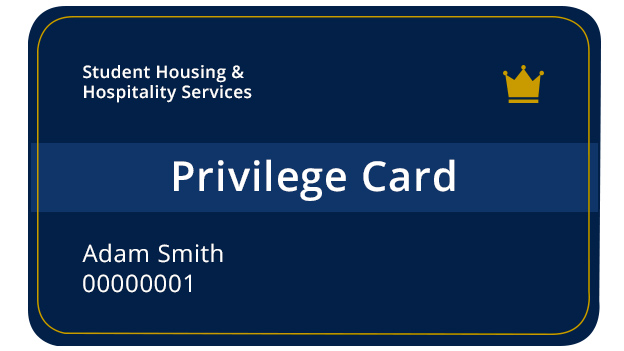It has recently been revealed that UBC is planning to increase the cost of its 8-month-term student housing fees by a whopping 20%. This is just one of a number of fee increases proposed by the university slated to take effect in 2015.
In a presentation to the AMS, the university explained that this increase (an estimated $105 – $140/month) will support its vague goals of improving services and increasing financial aid and work/learn opportunities. The administration claims the increase will be within ‘UBC’s pricing principles’ of being at or below local and peer market prices.
However, the on-campus housing provided by the two peer universities referenced in the presentation (The University of Toronto and McGill University) are not comparable markets. They are situated in and around the city’s downtown core, whereas our residences are 40 minutes to an hour by transit to downtown Vancouver. Moreover, the comparison to local markets is, at best, a duplicitous representation of data based on the comparison of a dormitory unit ($778) to an average Vancouver rental unit ($860).
The increase would mean that Gage Residence will cost $820/month for a shared 6-person unit, $1,128/month for a studio apartment and $1,500 for a 1 bedroom apartment.[1] This is well above the local market average of $901 and $1,039 for studio and 1 bedroom apartment, respectively.[2]
It is deceitful to compare the fixed cost of one of the university’s least expensive unit categories to the negotiable average price of available Vancouver rentals to justify UBC’s compliance with their Housing Action Plan policies.
Even if UBC’s Comparative Market Analysis (CMA) had been accurate, it is still an unacceptable way of determining campus housing costs. UBC has a responsibility to provide what is best for students and their academic experience. There is no room for a CMA in the discussion about what students need and deserve: it is nothing more than a capitalist tool for helping UBC determine exactly how much it can jack up its prices before it drops from our list of available options.
A few weeks ago, I attended a student leadership breakfast at which Professor Gupta remarked that he always says students are the most important part of a university – what would it be without us? Yet the university treats us more like disposable customers that it can connect with its running list of corporate partners than it does ‘important’ students. Is it really in our best interests to build extravagant apartment complexes if it is going to cost us $1,128/month for a studio? Or is it in the best interests of the those corporations receiving the trickle up of our 20% fee increase?
We have already identified the need for more affordable housing on campus. Students have also called out the inadequacy of UBC’s proposed advocacy plan for an increased shelter allowance,[3] an allowance that is part of a loan inaccessible to international students[4] – much like many of UBC’s financial aid programs.
The pretense of a vague ‘more financial aid’ plan hides its inaccessibility to the range of students in need. Much of UBC’s financial aid for current students is based on the merit of a 27 credit course load, and this is particularly limiting for international students.[5] Furthermore, there are students who can barely afford the 18 credit requirement to maintain full time status and be eligible for housing in the first place.
The strains of UBC’s price increases fall on the university’s most marginalized students. This means that those who remain to reap the benefits of this growth will be the most financially privileged among us.
For many international and lower-income students, UBC’s financial aid will never be accessible, regardless of our increasing housing needs. Instead of assisting us, the university is masquerading as a false Robin Hood, taking from the poor for the benefit of its merry (rich) men as it continues to push us out into the cold xenophobic Vancouver market, fraught with classism, transphobia and many more unpleasant surprises.
It is no secret that lower-income students, particularly lower-income students of colour, find it difficult to secure suitable housing in Vancouver. Without rich daddies to co-sign our lease, we are left to navigate the sea of credit checks and reference requests required to merely be considered. And then, when we are unable to produce the white-sounding name and upper-class business title that homeowners are looking for, we find ourselves backed up against the rising wall of UBC housing prices.
It is time for this to stop.
It is time for us to demand accountability from UBC and our elected student leadership.
It is time for us to fight for education that is accessible to every student, regardless of income or nationality.
It is time to remind the university that we have a voice, we have power, we have needs, and we refuse to give them up.
If we don’t act, then we allow UBC to further marginalize our communities of colour; to increasingly exploit our lower income students; to make itself richer, whiter, straighter, more anglo, more cis, more everything they could ever want it to be.
And it’s a dark kind of funny, that I can almost hear UBC administration now, pouring their coffee, planning their beach resort summer vacations and asking, “what’s your point…?”
That’s my point.
[1] Walter Gage Fees. [2] Canada Mortgage and Housing Corporation: Rental Market Report – British Columbia Highlights, p. 9. [3] The University Community on Campus: UBC’s Housing Action Plan, p. 14. [4] StudentAid BC: Basic Eligibility Requirements. [5] See, for example, Scholarships and awards for current students.




